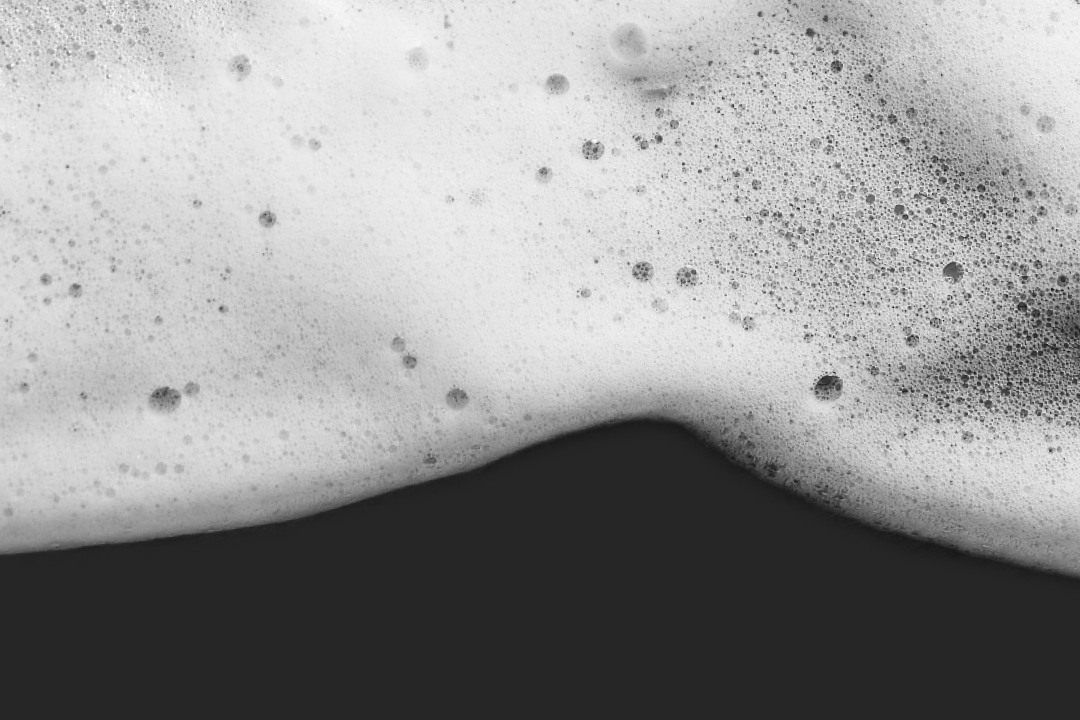Is It Possible To Restore Tooth Enamel Naturally?
We all have fun treats we like to indulge in, whether it be a tasty iced latte, rich chocolate, or perhaps a salty snack like salt and vinegar chips.
Although we all deserve a treat every now and then (or more often, you do you), acidic and sugary foods can weaken your tooth enamel and cause some serious issues. Luckily, it is possible to restore your tooth enamel, but can you do it naturally?
Bite is here to give you all you need to know about restoring your tooth enamel naturally.
What Is a Tooth Made of?
It is important to know what your teeth are made of to figure out which ingredients and tools will help you restore your tooth enamel. We’ll begin with the basics.
Your teeth contain quite a few layers, but the main two layers we will focus on are the tooth enamel and dentin.
Starting on the top layer, you have what is called tooth enamel. The tooth enamel is made of a mineral called calcium phosphate. Your tooth enamel also contains hydroxyapatite, a natural material that maintains the strength of your enamel.
Your enamel is the main part of your teeth that outside elements like water, food, and other liquids touch. If any damage is done to your teeth, the enamel is what gets compromised first.
Underneath your tooth enamel is your dentin. Dentin is a softer tissue that contains hydroxyapatite and the protein collagen, making this tissue a bit more similar to bone than tooth enamel.
You also have nerves and blood supply that go to the tissues in your teeth to keep them healthy and nourished, and you may be familiar with these nerves if you have ever received a root canal.
Root canals may be required if you have an infected tooth as a result of untreated cavities, but you may also need a root canal for other reasons.
What Causes Enamel Damage?
There are quite a few substances and activities that can cause your tooth enamel to weaken. Below is a list of just some causes of enamel damage and weakening.
Acidic Foods and Beverages
There is nothing quite like a warm, energizing cup of coffee in the morning paired with delicious fruit like apples and oranges. Unfortunately, beverages like coffee and wine and foods like citrus fruits are large culprits for weakened tooth enamel.
The acids in these foods cause the loss of hard tissue on your teeth, mainly your tooth enamel.
Sugary Foods and Beverages
Sugary drinks like soda or processed fruit juices and foods like candy are delicious and tasty, but they can cause some serious issues for your tooth enamel.
Soda is high in sugar, but it is also incredibly acidic as well. Many popular sodas have a pH level of around two, meaning they are highly acidic.
Many sodas also contain phosphoric acid. Phosphoric acid is an oxygen acid of phosphorus, and it can cause serious damage to your teeth.
Acid Reflux
Acid reflux disease, otherwise known as GERD (gastroesophageal reflux disease), is a condition where the contents of your stomach, mainly stomach acid, are brought back up into your esophagus.
GERD can cause extreme discomfort along with serious health issues like cancer of the throat and heart issues as well. GERD also causes vomiting, which can erode your tooth enamel.
Dry Mouth
Often overlooked, the saliva in your mouth plays a crucial role in the health of your teeth and gums. Saliva helps break down the food in your mouth, initiate digestion, and keep debris and bacteria at bay.
If you struggle with dry mouth, it becomes more difficult for your mouth to flush out debris and bacteria, and these can cause tooth decay by breaking down your tooth enamel.
Can You Reverse Weakened Tooth Enamel?
To an extent, we all have some sort of tooth enamel damage which is a natural part of life, whether it be from cavities or tooth enamel erosion.
Luckily, it is possible to rebuild and restore the enamel of your teeth, but can you do it naturally?
Many kinds of toothpaste that help restore your tooth enamel may be beneficial, but they also contain harsh chemicals and even alcohol that can irritate your gums. Some people also prefer avoiding harmful chemicals and sticking to natural products.
At Bite, we understand how important it is to maintain a solid oral care routine for dental health, but we also know how harmful and wasteful these routines can become. Many of us use toothpaste at least twice a day, and the waste from plastic toothpaste tubes can add up.
We also know that some individuals want to avoid fluoride in their oral hygiene routines, whether because of a personal choice or an allergy. Either way, we have figured out how to restore and rebuild tooth enamel the natural way.
Our key to healthy teeth comes from nano-hydroxyapatite, or nHAp.
What Is nHAp?
NHAp is the synthetically-derived version of hydroxyapatite, which is what is naturally found in your tooth enamel.
NHAp is a fantastic ingredient because of the way it can aid the remineralization process — nHAp can help support your tooth enamel without the need for fluoride. How cool is that?
NHAp has smaller molecules, which means it can bind to plaque and bacteria in hard-to-reach places on your teeth while remineralizing your tooth enamel at the same time.
Is nHAp As Effective as Fluoride?
Because fluoride has been the gold standard for dental care for years, you may wonder if NHAp can work as effectively as fluoride.
Fluoride is a mineral naturally occurring in rocks and used in toothpaste, mouthwash, and even water supplies.
Like nHAp, fluoride also remineralizes tooth enamel which is why it is so widely used in dental care, but what is the concern about fluoride?
The reason why a number of individuals avoid fluoride is because of certain health concerns.
In order for any conditions to occur, however, a person must consume very large amounts of fluoride, and there are limits set forth by the EPA that prevent too much fluoride from being put in drinking water.
Regardless of whether you have a sensitivity to fluoride or want to eliminate it from your oral care routine, doing so is possible because NHAp has been proven to work just as effectively as fluoride!
How Can I Strengthen Tooth Enamel?
Now that we know how nHAp works and its incredible abilities for strengthening tooth enamel, how do you use it?
At Bite, we have harnessed the power of nHAp to create sustainable oral care that helps clean your mouth and the earth at the same time.
Our Toothpaste Bits are formulated with nHAp and other clean, natural ingredients for oral health and hygiene that help keep your mouth clean and fresh and your teeth strong. Below are just some of the wonderful ingredients that we put into our bits.
Erythritol
Erythritol is a powerful yet gentle substance that prevents bacteria from living in your mouth and causing pesky cavities.
Xylitol
Xylitol is a natural substance that also wards off bacteria that causes cavities and bad breath, and it even has a sweet taste! You can also commonly find xylitol in sugar-free chewing gum.
Sodium Bicarbonate
We put sodium bicarbonate in our bits to balance the pH levels in your mouth. Tooth erosion occurs when your mouth is too acidic, so sodium bicarbonate keeps that acidity down.
We have formulated our Toothpaste Bits without using artificial flavoring, animal testing, and harsh chemicals that can irritate your mouth and cause health issues.
Even better, these bits are packaged in reusable and recyclable glass jars that you can even take on the go for moments when your breath isn’t feeling so fresh. We also send you refills every four months packaged in compostable pouches so that you are always stocked up on clean oral care.
Though nHAp is a fantastic ingredient for keeping your enamel strong and healthy, we know that some people just prefer fluoride, which is totally okay! That is why you have the option to choose between Toothpaste Bits formulated with nHAp or with fluoride.
Whether you choose to use our Toothpaste Bits made with nHAp or fluoride, you are sure to achieve a brighter, cleaner, and stronger smile either way.
With Bite, you can reinvent your oral care routine, one bit at a time!
The Bottom Line
In a world filled with delicious foods and drinks that are not so great for your teeth, it can be difficult to keep up with maintaining a strong and healthy smile.
The struggle of balancing treating yourself and taking care of your health is real, and we at Bite understand that. That is why we are committed to providing oral care products that make that balance easier for you.
With convenient packaging, clean ingredients, and bits that do not make a mess like traditional toothpaste does, it is possible to restore your tooth enamel, the natural way!
Sources:
Tooth Enamel: Nature's Crowning Achievement | UCSF
Tooth Anatomy | National Library of Medicine
What is a Root Canal? | American Association of Endodontists
Gastroesophageal Reflux Disease | National Library of Medicine
Science Behind Human Saliva | National Library of Medicine
Water Fluoridation and Cancer Risk | American Cancer Society


